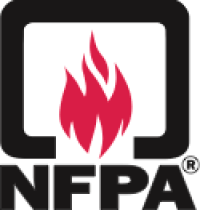June 26, 2012 – According to a recent study, “Addressing Community Wildfire Risk: A Review and Assessment of Regulatory and Planning Tools,” released by the Fire Protection Research Foundation, an affiliate of the National Fire Protection Association (NFPA), collaboration and outreach and education programs are needed to achieve the greatest impact in reducing community wildfire risk.
The risk of catastrophic fire occurrence in the wildland/urban interface (WUI) is a major issue in today’s fire protection community. At a time when prolonged drought, longer and hotter summers and changing climates have contributed to an increase of wildfire threats in the WUI, communities are also faced with shrinking budgets and increasing wildfire suppression costs.
Zoning administrators, building officials, planners and fire/emergency managers have potential tools to consider when addressing their community wildfire risk, which include land regulation, building codes and standards, Community Wildfire Protection Plans, and wildfire hazard mitigation planning, according to the report. Collaboration among these officials and the tools they use are needed for a comprehensive wildfire preparedness effort.
The report also stresses that outreach and education programs, such as the Firewise Communities/USA® Recognition Program, strengthen the overall efforts conducted by WUI professionals.
More information and the full report are available on the Foundation’s website.
About the Fire Protection Research Foundation
The Fire Protection Research Foundation plans, manages, and communicates research on a broad range of fire safety issues in collaboration with scientists and laboratories around the world. The Foundation is an affiliate of NFPA.
About the National Fire Protection Association (NFPA)
NFPA is a worldwide leader in fire, electrical, building, and life safety. The mission of the international nonprofit organization founded in 1896 is to reduce the worldwide burden of fire and other hazards on the quality of life by providing and advocating consensus codes and standards, research, training, and education.












